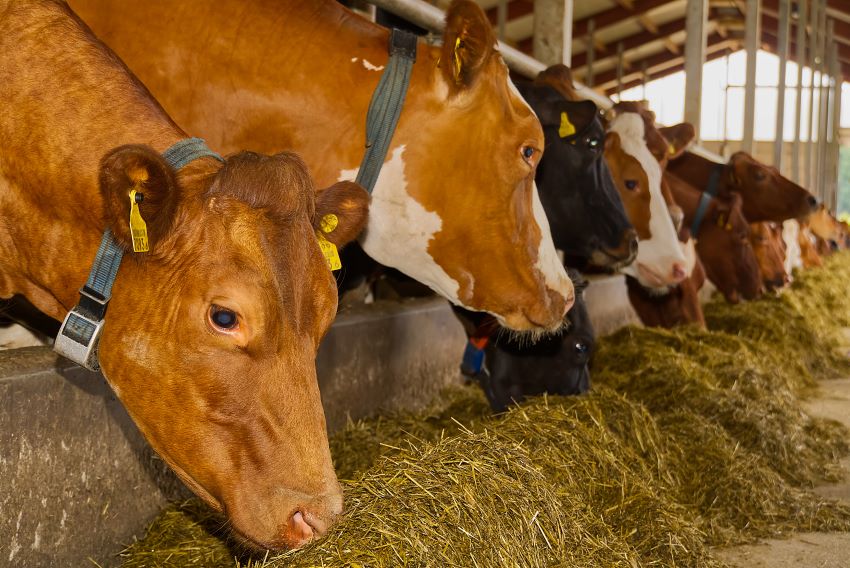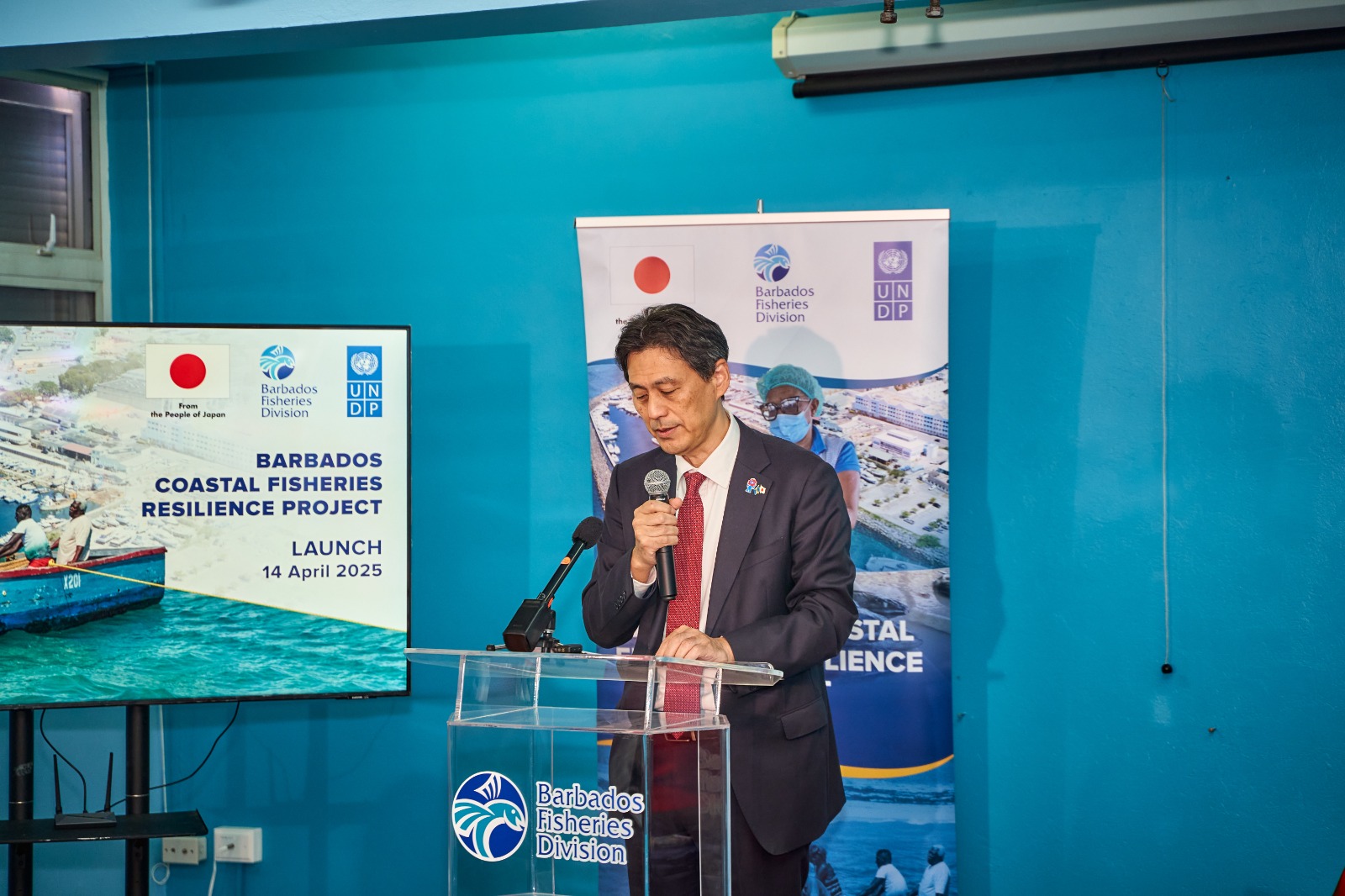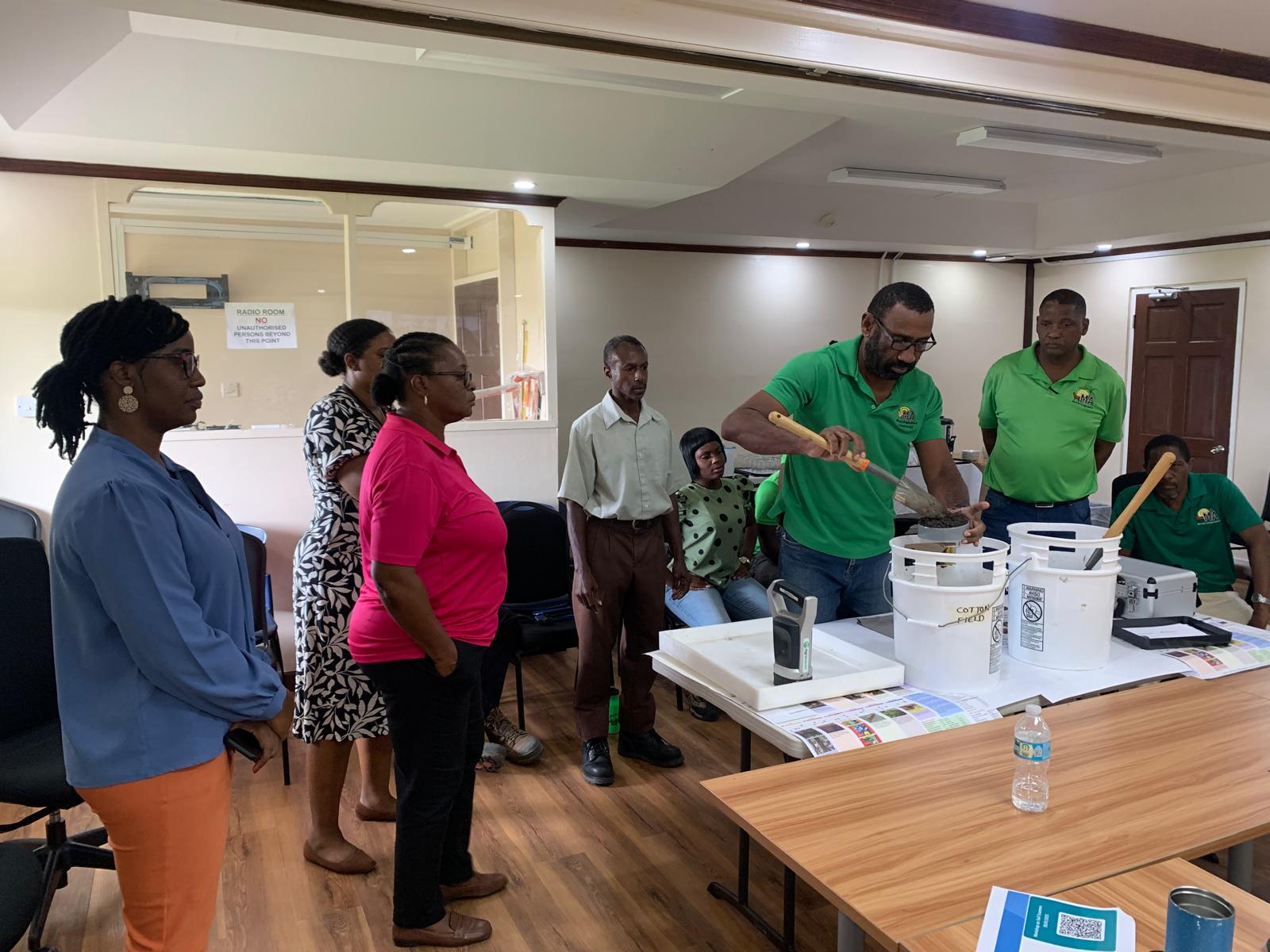Grenada, famously known as the “Spice Isle,” is making significant inroads to improve the quality of its “Trinitario” cocoa and cocoa products. This was the main objective behind the five-day training workshop on cocoa agronomy, post-harvest processing, and sensory analysis from January 20-24, 2025, the collaborative effort of The Food and Agriculture Organization of the United Nations (FAO), the Ministry of Agriculture & Lands, Forestry, Marine Resources & Cooperatives of Grenada and the Grenada Cocoa Association. The training was attended by over 40 participants, including farmers, agro-processors, extension officers, agronomists, plant propagators, and chocolate makers and held at Grenada Cocoa Association’s Processing Facility in Mt. Horne in St. Andrew.
Led by experts from the Cocoa Research Centre of the University of the West Indies, including Professor Umaharan, Head, Cocoa Research Centre/Professor in Genetics and Dr Sukha, Research Fellow and Food Technologist, the workshop provided comprehensive insights into sustainable practices, quality enhancement, and flavor profiling. The practical sessions focused on key field management practices such as pruning, grafting, soil fertility, managing pest and diseases, as well as understanding the principles driving cocoa fermentation and activities affecting the flavour profile of cocoa beans and chocolate through sensory evaluation, which equipped participants with tools to monitor how production and post-harvest practices influence flavor, ensuring the region’s continued excellence in specialty cocoa.
Ms Anne Desrochers, FAO’s Plant Production and Protection Specialist highlighted, “The training was aimed at empowering farmers, agro-processor and other stakeholders to adopt sustainable practices, enhance productivity and promote the awareness of quality through sensory analysis. Through the knowledge gained, I believe the participants are better equipped to further safeguard the legacy of Caribbean cocoa while unlocking its full potential in the high-value specialty cocoa market.”
Reflecting on the knowledge gained, Ms Trishia Marrast, Extension Assistant of the Northern Agricultural District stated, “This training was highly educational, emphasizing the importance of understanding and managing witch’s broom disease and mastering grafting techniques. It provided valuable opportunities for extension officers, farmers, and processors involved in the cocoa industry”.
Mr Andel Findley, Production Supervisor at Diamond Chocolate Factory added, “The sessions on post-harvest and fermentation methods were particularly beneficial, providing practical insights into cocoa fermentation and the evolution of new techniques. As a chocolate maker, I found the training refreshing, it reinforced past knowledge and introduced new materials, essential for maintaining high-quality cocoa products”.
The training also covered key challenges like, mitigation of cadmium in cocoa, pest and disease control, food safety and farm rehabilitation, equipping stakeholders with the tools to boost productivity sustainably and enhance knowledge on industry standards.
Of the seven countries designated by the International Cocoa Association as exclusive 100% fine quality cocoa producers, three are from the CARICOM, including Grenada. The current demand on the international market for Caribbean fine flavour cocoa exceeds the available supply. However, through partnerships and collaborative efforts with the Ministry of Agriculture, revitalizing and enhancing cocoa productivity in Grenada can pave the way for sustainable growth, increased production, and quality cocoa products. (PR)


 Sports2 weeks ago
Sports2 weeks ago
 Business2 weeks ago
Business2 weeks ago
 Government3 weeks ago
Government3 weeks ago
 International4 weeks ago
International4 weeks ago
 Features4 weeks ago
Features4 weeks ago
 Government3 weeks ago
Government3 weeks ago
 Business2 weeks ago
Business2 weeks ago
 Education4 weeks ago
Education4 weeks ago























